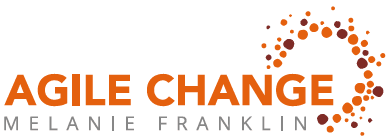If we want to inspire change at work, it helps to know that the changes are aligned to the broader context of changes that are taking place socially and economically around us. Thinking about the trends for work in 2023 is shaping how I explain the value and relevance of the change initiatives I am responsible for.
These are my 3 key trends for 2023:
Covid has faded for many of us, but the uncertainties continue. Economic and personal financial uncertainty, new norms for where and when we work, how much travel we do to get to work and how much community and socialisation we need from work .
The research from the Mayo Clinic in 2022 established that to be truly fulfilled at work means that every day we must do something we love for at least 20% of our time doesn’t feel impossible. But…many of us spend our time on the daily grind, things that do not rely on being creative and innovative or that inspires joy.
Finding time to pursue ideas that inspire us, especially when we are already over-committed is a challenge. We get to the end of the day with so much still to do, and we start work the next day playing catch-up.
Identifying those things that don’t add value is going to be key. We all do things because they are existing processes, without perhaps questioning if that process was created at a different time, with different pressures and priorities. Is the answer that was right for that point in time still the answer?
I am seeing the emphasis in transformations shift to include as much emphasis on stopping, removing, ending old practices, as much as it is about introducing new ones.
To make their removal sustainable in the longer term, we must couple these shifts with a refresh of our cultural norms. What are our priorities? What does good look like today?
The impact of big, strategic transformational change decisions is felt everywhere in the organisation. The scale of the change might be different, but everyone will have to change how they do things, or when, or with whom, or how often or in what format or frequency. The organisations that are coping best are those that have realised that leading ourselves through change is a vital skill and are helping to develop this skill in everyone. It is not a job title; it is a capability that we all need.
Developing resilience, being able to find the positives and the benefits from any challenge are core to effective leadership of any situation, so these skills are not just “nice to have”, they make the boat go faster for the whole organisation.
Let’s make sure we build this training into every project and change plan we create, lets argue for more resources to be spent building the environment where everyone is mentally prepared for change before we start asking people to cope with the uncertainty and hard work of doing things differently.
There are so many uncertainties that just following the opinion of one leader feels risky. What makes us sure they are right? We want evidence that what we are doing is the best possible idea, probably linked to the feeling that we don’t have time to go down the wrong path, we are too busy to have to turn back and do it again.
Is that why neuroscience is of such interest to many? Knowing how our brains work means that we can select the most effective approach every time, not just rely on luck to connect, to empathise, to motivate and inspire. To reassure those impacted by change, I give lots of examples of how techniques have been applied in other organisations and the outcomes that they have generated. This helps people decide what action to take, but their interest and their motivation is so much higher when I explain how techniques align with how our brains naturally work.
Decide how much of these trends you are seeing in your work, and think about other factors that are emerging that shape what you do, how you do it and who you need to work with to achieve your objectives. Best wishes for a happy and successful 2023.
